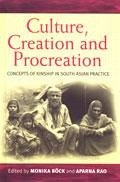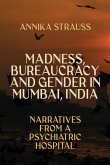As reproduction is seen as central to kinship and the biological link as the primary bond between parents and their offspring, Western perceptions of kin relations are primarily determined by ideas about "consanguinity," "genealogical relations," and "genetic connections." Advocates of cultural constructivism have taken issue with a concept that puts so much stress on heredity as being severely biased by western ideas of kinship. Ethnosociologists in particular developed alternative systems using indigenous categories. This symbolic approach has, however, been rejected by some scholars as plagued by the problems of the analytical separation of ideology from practice, of largely overlooking relations of domination, and of ignoring the questions of shared knowledge and choice. This volume offers a corrective by discussing the constitution of kinship among different communities in South Asia and addressing the relationship between ideology and practice, cultural models, and individiual strategies.
Dieser Download kann aus rechtlichen Gründen nur mit Rechnungsadresse in A, D ausgeliefert werden.









